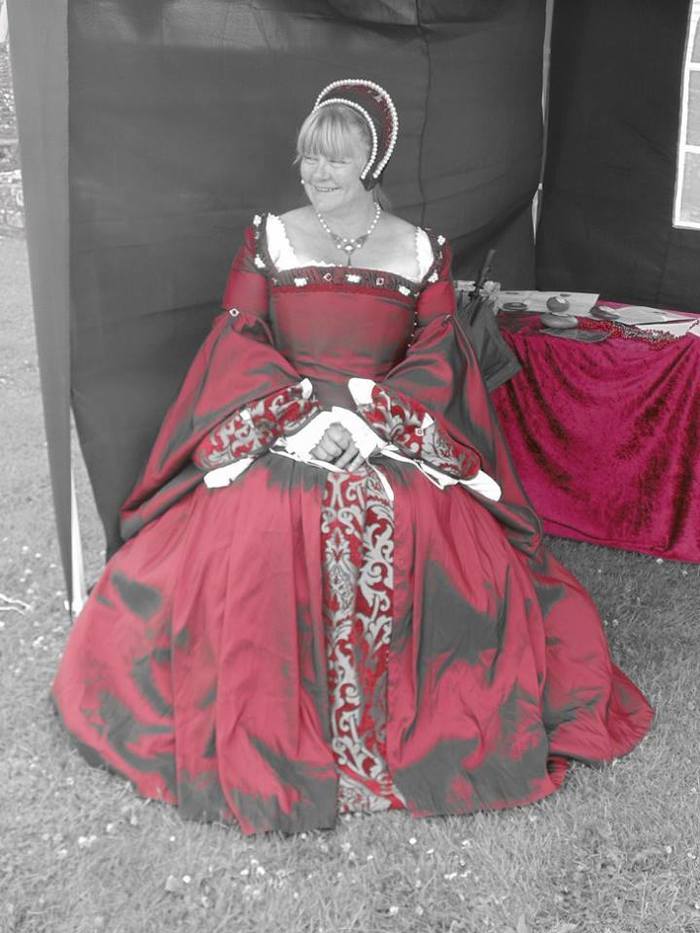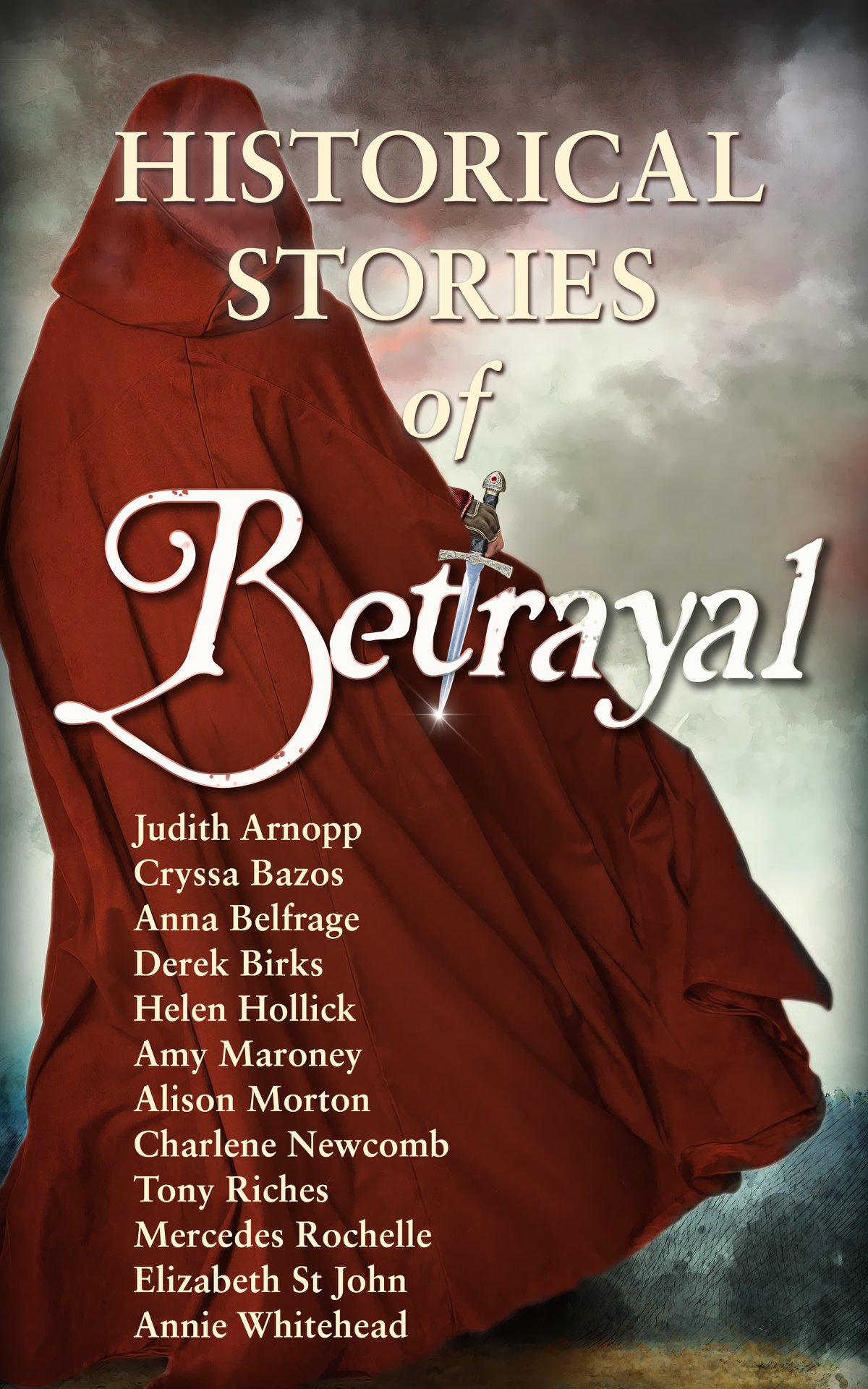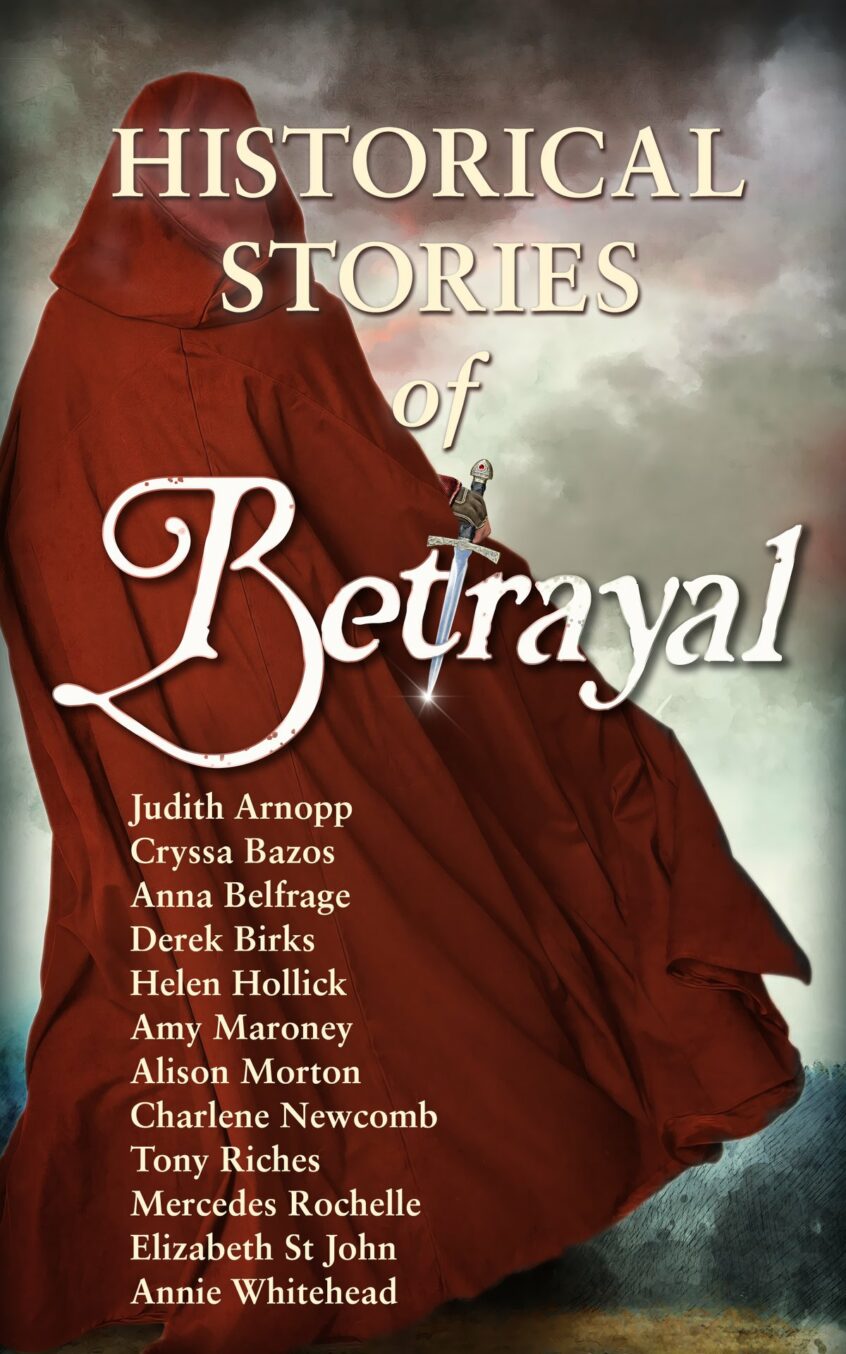I have, for many years, enjoyed Judith Arnopp’s Historical Fiction. I first read her eleventh century novels eight years ago and I am currently reading her Tudor novels. Judith is pure gold as a writer. Her novels flow and the writing is vivid, so when I was asked if I would host her tips for writing Historical Fiction on the Writers’ Hub, I jumped at the opportunity. She has an excellent story in a new anthology called Betrayal. The link is at the very bottom of this post so take a look. All the stories in this collection are riveting but, for me, Judith’s short story is special.

Judith Arnopp in a Tudor Costume she created. It is gorgeous.
Tips for writing Historical Fiction by Judith Arnopp
I am always reluctant to offer writing advice. We all have our methods and there is no wrong or right way to go about it so I can only help you learn from my own experience.
Usually the germ of an idea appears in my head long before the writing begins. I might try to ignore it even though I know it won’t go away until I’ve dealt with it. I don’t make a detailed plan but I sketch a rough outline, think hard about where I can take the narrative and how I can make it different from other existing work.
I look at photographs, build a Pinterest board for inspiration and ideas. Being an author involves an awful lot of staring at faces, clothing, food, houses. The past is a vast place, teeming with the unknown and if your book is to be believable you need to learn all you can about the time it was set in. Of course, this involves an immense amount of research and it can be difficult to know when to leave off note taking and start writing the actual book
I often have to force myself to begin but once the first chapter is written, it gets easier. I aim for a certain number of words per day but usually fail to meet the target. I have discovered that as long as something is added to the wip every day, it will be finished. You haven’t failed until you give up trying. I always start out with the intention of being organised and fabulously in control. I tidy my desk, keep my reference books in a tidy pile, my notebook orderly but I invariably end up with a tatty pile of scribbled notes and a very messy desk and a lot of biscuit crumbs
When it comes to the actual composition, my primary advice is to write the sort of book you like to read. Try not to get bogged down with over-elaborate description or unnecessary details. Do not be tempted to show off all the lovely knowledge you gained during your research because the result is invariably dull.
I find it useful to immerse myself in the period and, as far as possible, try to live the story I am writing. I study paintings, contemporary memoirs, diaries, court rolls. I am fortunate that my ‘other job’ is making Tudor clothing, so I can test out the restriction of the heavy skirts, know the texture of the fabric, as well as the discomfort of rough fingertips caused by wielding an embroidery needle.
Writing can be a very lonely career choice but I wouldn’t change it. You may need to shut yourself away from the distraction of friends and family. You may live on an inadequate diet, neglect yourself, and as you slog on through the narrative, there may be times when you feel like giving up but, like a cross channel swimmer, the end is there, just ahead. You just need to keep swimming. Tell yourself how brilliant it will be when you finally stagger up the beach and someone wraps you in warm towels and hands you a cup of cocoa.
And once you’ve typed ‘The End’ you discover this is where the real work begins. It is a good idea to leave the manuscript alone for a few weeks. Go on a short break or catch up with all the chores you’ve been neglecting. Don’t go back to it until it is cold. If you step back from it for long enough, the areas requiring change will be more evident. Be ruthless, cut unnecessary words and clutter, make sure your story is tight, and your characters, even the grand ones, as accessible as someone you might meet in your local pub. A critique group can help here. You will also need a few beta readers, and a professional editor (preferably not your auntie).
I would never advise a newbie independent author to spend out much on a cover but that doesn’t mean anything will do. If you keep it simple it needn’t cost much and you can create your own using the simplest of tools. There are affordable stock photo sites and free online photo editing sites but make sure you practice. Like writing, it takes time and patience to become proficient. If you don’t have the skills or the time to learn them then look for affordable cover artists. Set your budget and stick to it.
These days an author must be researcher, author, editor, in some cases a cover designer and publisher but for me, the most difficult, cringe worthy thing I have to do is marketing. I find self-promotion very difficult. I can always hear my mother telling me not to be a ‘show off.’ There are plenty of marketing experts who you can pay to help but this can eat up your profits so tread carefully and keep an eye out for sharks. These days, even the big guns need to market their own books, and the more books you write, the harder the task becomes. My dream is to become successful enough to afford to hire a marketing team so I can sit at home and just write my books, until then I suppose I must get on with it myself.

A Superb Collection of Short Stories. See the link below Judith’s Bio.
Bio:
A lifelong history enthusiast, Judith Arnopp holds an honours degree in English/Creative writing, and a Masters in Medieval Studies. Judith has written twelve novels to date. Nine of which are based in the Tudor period covering women like Elizabeth of York, Anne Boleyn and Mary Tudor but her main focus is on the perspective of historical women from all roles of life. The Beaufort Chronicle: The Life of Lady Margaret Beaufort (three book series) covers the transitional period between Bosworth and the death of Henry Tudor. She is currently taking a break from Tudor women and writing from the perspective of Henry VIII himself in “A Matter of Conscience.” Judith’s latest story “House Arrest” is included in the historical fiction anthology Betrayal.
Social Media Links for Judith:
Website: https://www.judithmarnopp.com
Facebook: https://www.facebook.com/thetudorworld/
Twitter: @JudithArnopp
Historical Fictioneers Social Media:
Historical Fictioneers: Facebook
Twitter @HistFictioneers
Betrayal is available through all online retailers https://books2read.com/BetrayalAnthology






2 Comments on “Meet Judith Arnopp and read her Historical Fiction Writing Tips”
Lovely post from Judith. Always enjoy reading about a writer’s processes. And her costumes look fabulous. Just saw the one for Henry on Facebook, and they are such a lot of work.
Thank you for hosting me. I’ve really enjoyed writing this post,